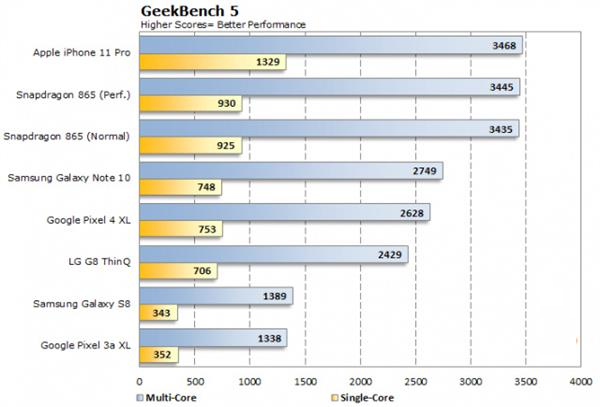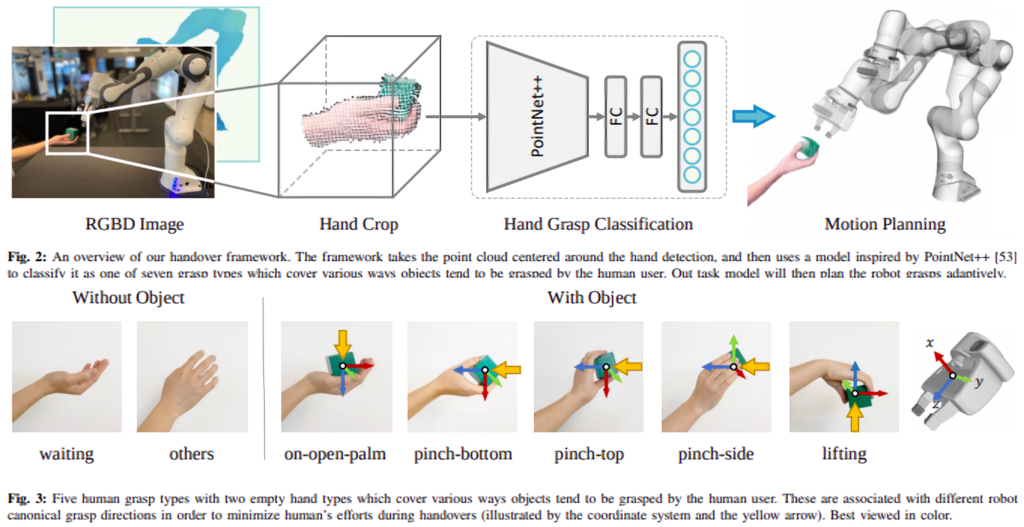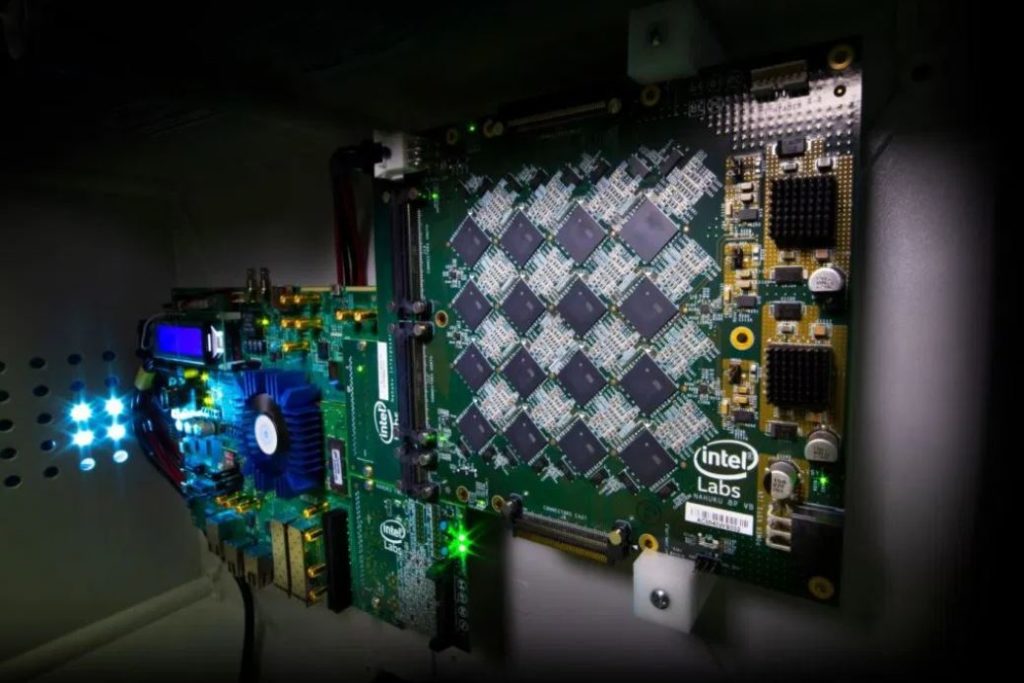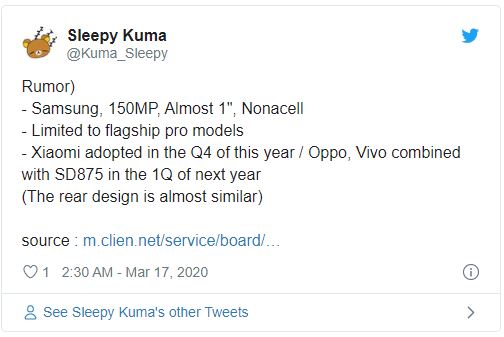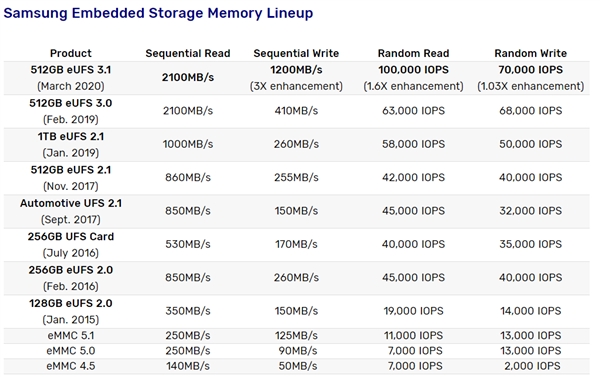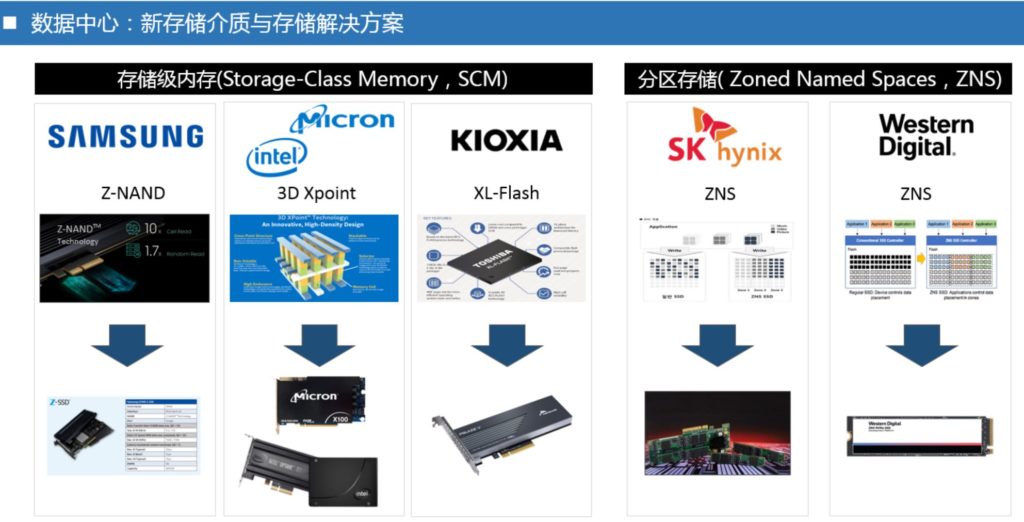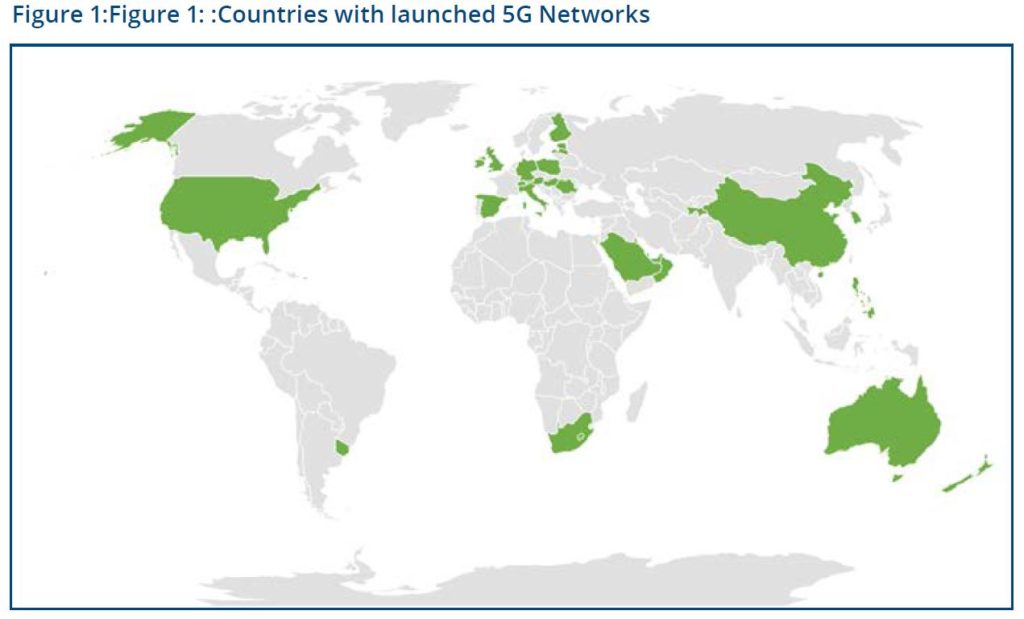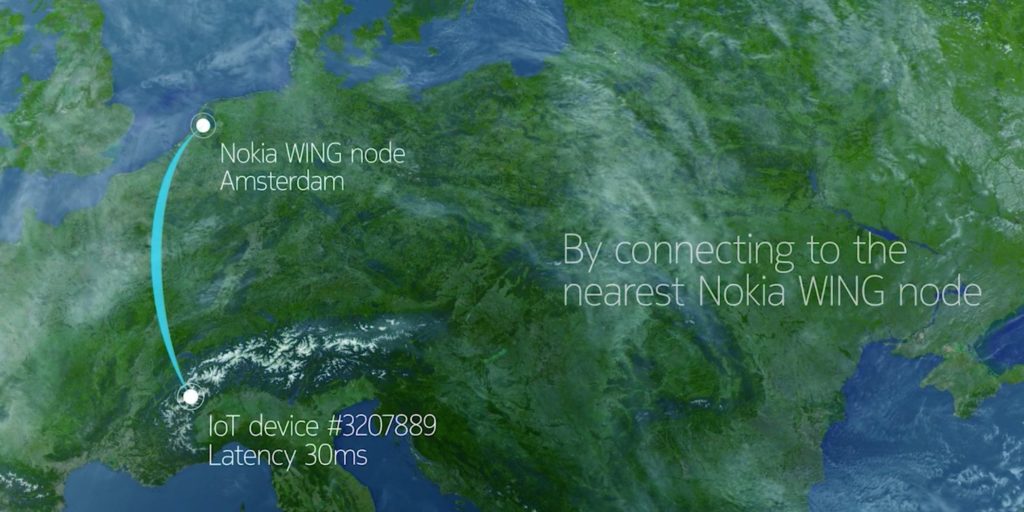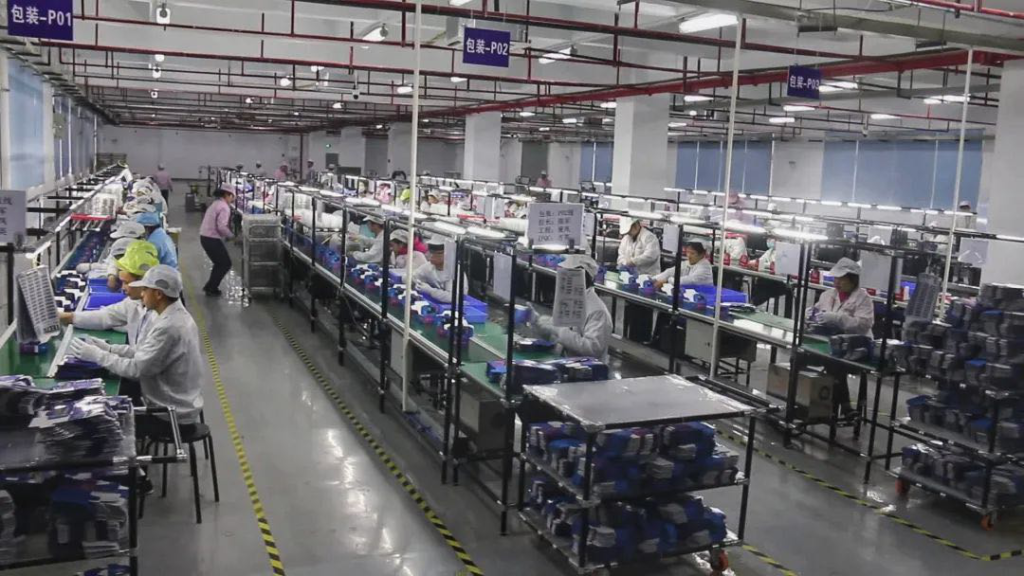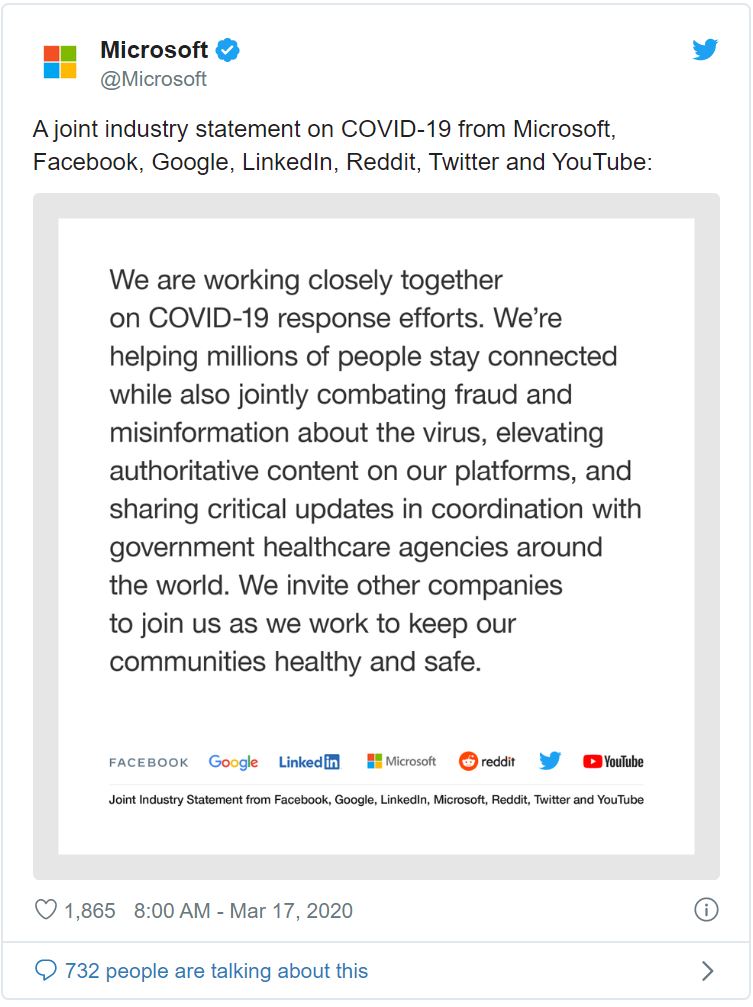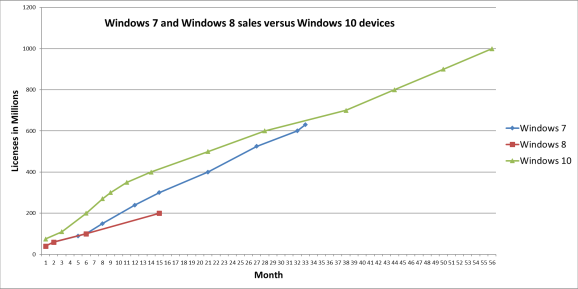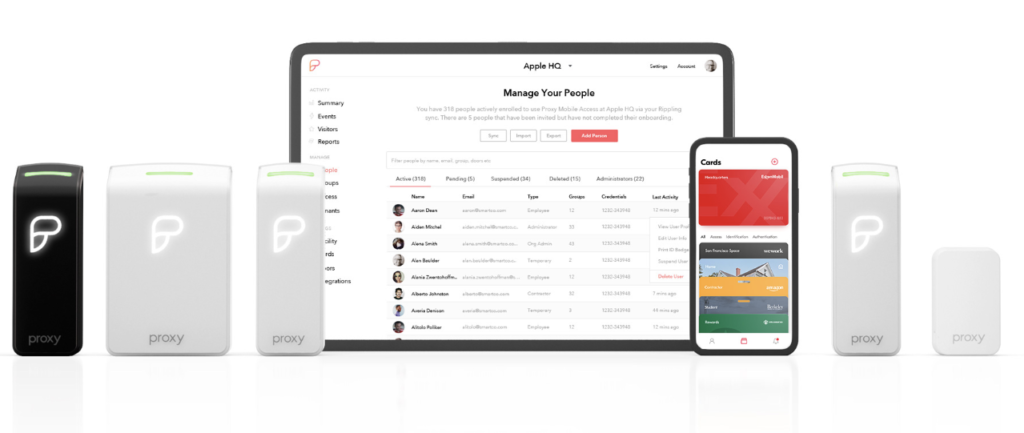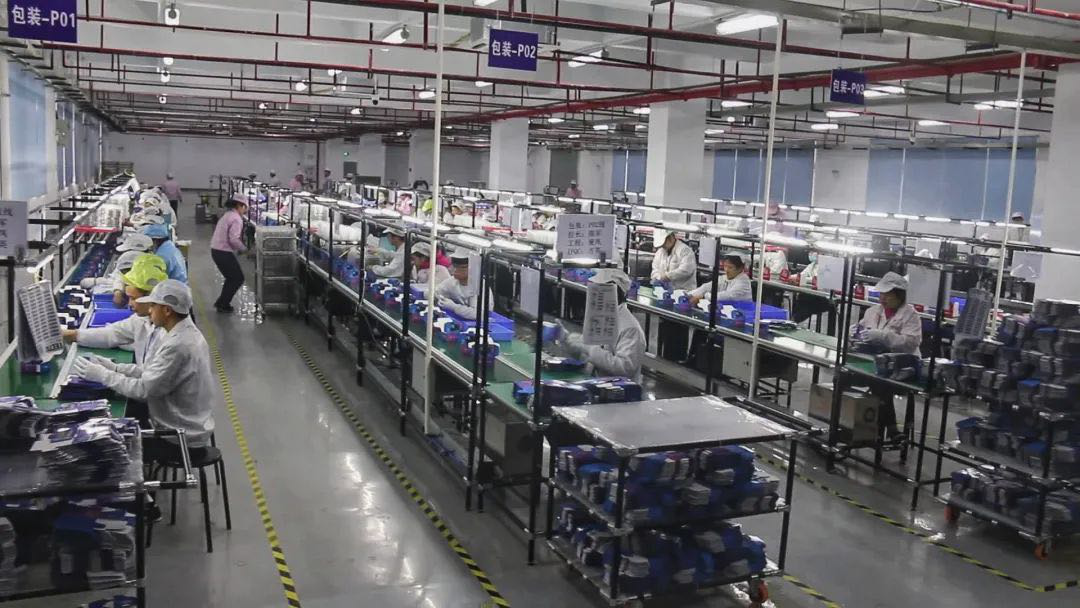
3-17: Samsung is allegedly developing its 150MP image sensor; Sharp plans to spin off its liquid crystal display (LCD) unit within 2 years; etc.
Chipsets
The GeekBench 4 running score of Apple A14 has appeared, and the frequency has reached 3.1GHz, which makes Apple A14 the first ARM mobile processor to officially exceed 3GHz. (Mac Rumors, Research Snipers)
Nvidia proposes an approach for human-to-robot handovers in which the robot meets the human halfway, classifies the human’s grasp, and plans a trajectory to take the object from the human’s hand. They claim it results in more fluent handovers compared with baselines, and they say it could inform the design of collaborative warehouse robots that bolster workers’ productivity. (VentureBeat, ARVIX)
TSMC is stepping up its evaluation of whether to build an advanced chip facility in the U.S. in response to pressure from Washington, which wants TSMC to produce on American soil over security concerns. TSMC is reportedly considering producing 2nm chips in the U.S. TSMC has indicated that the company has been studying it continuously. That decision is made to the best interests of customers. (CN Beta, TechWeb, Asia Nikkei)
Intel and Cornell University have developed an “electronic nose” system based on Intel’s Loihi neuromorphic chip that can detect 10 different chemicals as accurately as a state-of-the art deep learning system, but with very little training required. (CN Beta, EE Times, My Drivers, Nature)
Touch Display
LG Display (LGD) is reportedly struggling with low yield of rollable OLED panels for televisions due to using glass substrates. LGD seems to be using ultra-thin glass substrates with a thickness of under 0.2mm for the rollable panels. Due to this material, not only has the yield gone down, but potential loss rates are also high due to the fragility of the substrates. (Laoyaoba, The Elec)
Sharp plans to spin off its liquid crystal display (LCD) unit within 2 years in a bid to raise funds for investment in the next generation of panel technology. The internal LCD unit, Display Devices, amassed estimated revenue of JPY700B-800B (USD6.5B-7.4B) for the fiscal year ended Mar 2019. LCDs account for about 30% of Sharp’s consolidated revenue. Sakai Display Products, Sharp’s equity-method affiliate producing large LCD panels for televisions, will be unaffected. (Asia Nikkei, CN Beta)
The United States International Trade Commission (ITC) has announced that it is opening an investigation into Apple, Samsung, and other companies over potential patent violations. The complaint is filed in Feb 2020 by Irish company Neodron, which claims that Apple and others infringe on its patents related to touchscreen devices. The complaint alleges violations of section 337 of the Tariff Act of 1930. (My Drivers, 9to5Mac, Apple Insider, Sina, ITC)
Camera
Samsung is allegedly developing its 3rd generation 100MP level image sensor. The 150MP image sensor size is reportedly reaching 1”, and will be launched in 4Q20. It will be equipped with Samsung Nanocell technology. The final imaging result will possibly be a 16MP pixel-binned image with slightly improved low-light performance. (CN Beta, WCCFTech)
Imint Image Intelligence has teamed up with Qualcomm to develop a new generation of video enhancement solutions that leverage the latest in artificial intelligence and machine learning. Through this collaboration, Imint is poised to establish a new standard in smartphone camera performance through a suite of AI-based solutions that allows users to capture professional-quality content from mobile devices. (GSM Arena, Imint)
Memory
Samsung Electronics has announced that it has started mass producing 512GB storage chips that are based on the new, eUFS 3.1 standard. Delivering three times the write speed of the previous 512GB eUFS 3.0 mobile memory, Samsung’s new eUFS 3.1 breaks the 1GB/s performance threshold in smartphone storage. (My Drivers, CN Beta, Samsung, Sam Mobile)
Intel will reportedly have to pay more for Optane memory chips because a new supply deal with Micron. Micron supplies Intel with 3D XPoint wafers made at its Lehi, UT fab. Objective Analysis analyst Jim Hardy has indicated that Intel is losing money in its NVM Solutions Group (NSG) because 3D XPoint is proving very unprofitable to produce. He estimates that Intel lost about USD2B on 3D XPoint in each of 2017 and 2018, and USD1.5B in 2019. (My Drivers, AnandTech, Tom’s Hardware, Blocks and Files, Moore)
Connectivity
With multiple announcements of 5G launches in recent weeks, GSA now counts 63 operators in 35 countries that have launched one or more 3GPPcompliant commercial 5G services. There are 7881 operators with commercially launched LTE networks (offering broadband fixed wireless access and or mobile services). (CN Beta, C114, report)
The US President Donald Trump has signed the Secure and Trusted Communications Networks Act mandating that US telecoms rip out and replace any “suspect foreign network equipment” (effectively Huawei and ZTE equipment). The laws also establish a USD1B reimbursement program to help smaller providers with the cost of ripping out and replacing the prohibited equipment from Huawei and ZTE. (Engadget, Energy Commerce, Yahoo, ZDNet)
Nokia has announced that it is augmenting its Worldwide Internet of Things Network Grid (WING) with new 5G capabilities, enabling cellular carriers to offer global-scale 5G IoT services to customers without building out their own networks. (VentureBeat, Nokia, Mobile World Live)
Phone
The French Competition Authority has announced that it is fining Apple EUR1.1B (USD1.2B) over restrictions it placed in contracts with wholesalers. France antitrust regulator has alleged that Apple and two of its wholesalers, Tech Data and Ingram Micro, “agreed not to compete” and as a result prevented distributors from competing with each other, “thereby sterilizing the wholesale market for Apple products”. (Apple Insider, CNN, Variety, WSJ, Sina)
Transsion has announced that it would resume production in a timely manner while seizing the epidemic prevention work. The first 3,000 smartphones are successfully manufactured and all exported to Africa. On 1 Feb 2020, the Chongqing factory began preparations for resumption of work and officially resumed work on 11 Feb. It plans to invest 8 new smart production lines, and 3 lines has begun operation. (Laoyaoba, iFeng, TechWeb)
Facebook, Google, Microsoft, LinkedIn, Twitter, YouTube, and Reddit have announced that they are joining hands to provide accurate information about the COVID-19 coronavirus disease. (Neowin, Twitter)
Nokia C2 is announced – 5.7” HD+, UNISOC quad-core 1.4GHz processor, rear 5MP + front 5MP, 1+16GB, Android 9.0 (Go Edition), no fingerprint scanner, Google Key, 2800mAh 5W, price not yet available. (Nokia, Nokia Mob, Phone Arena)
PC Tablet
Windows 10 is now running on over 1B monthly active devices, just 6 months after passing the 900M device milestone. Microsoft has been consistently adding 100M active Windows 10 devices every 6 months over the past 2 years. Windows 10 also passed 50% desktop market share in Aug 2020. (Engadget, VentureBeat, Windows)
Samsung’s in-beta PC to phone game streaming app PlayGalaxy Link has been marked for shutdown three months into its beta period, and will go offline for good on 27 Mar 2020. (Engadget, Gamasutra, PlayGalaxy)
Home
Philips has announced that it would carve out the domestic appliances business, which produces coffee machines, vacuum cleaners and air-fryers and generated EUR2.3B (USD2.6B) in sales in 2019, in the coming 12 to 18 months. Philips CEO Frans van Houten has indicated that this business is not a strategic fit for our future as a health technology leader. (CN Beta, My Drivers, Bits-Chips, Reuters)
Keyless office entry startup Proxy has raised USD42M in Series B funding to speed up deployments of its door sensor hardware and access control software. Employers get their staff to install an app that knows their identity within the company, including when and where they are allowed entry. Buildings install Proxy’s signal readers, which can either integrate with existing access control software or Proxy’s own management dashboard. (TechCrunch, Tech Investor News)
Automotive
The UK’s Department for Transport has announced a new consultation into exploring new transportation modes that include e-scooters and e-cargo bikes, as well as bringing the on-demand model (popularized by services like Uber) to buses and other public transport alternatives, and using drones for medical deliveries. Alongside this, it announced funding of GBP90M (USD112M) for 3 new Future Transport Zones to trial these new services. (TechCrunch, Pocket-Lint)
The Big 3 Detroit automakers — General Motors (GM), Ford, and Fiat Chrysler Automobiles — have partnered with United Auto Workers (UAW) to form a task force aimed at protecting workers and limiting the spread of COVID-19, the disease caused by coronavirus. (TechCrunch, UAW, Forbes, Detroit News)
Fintech
Monzo, the U.K. challenger bank, is officially launching business bank accounts, after an extensive trial period over the last 12 months that saw early access given to 2,500 business customers. (CN Beta, TechCrunch)
